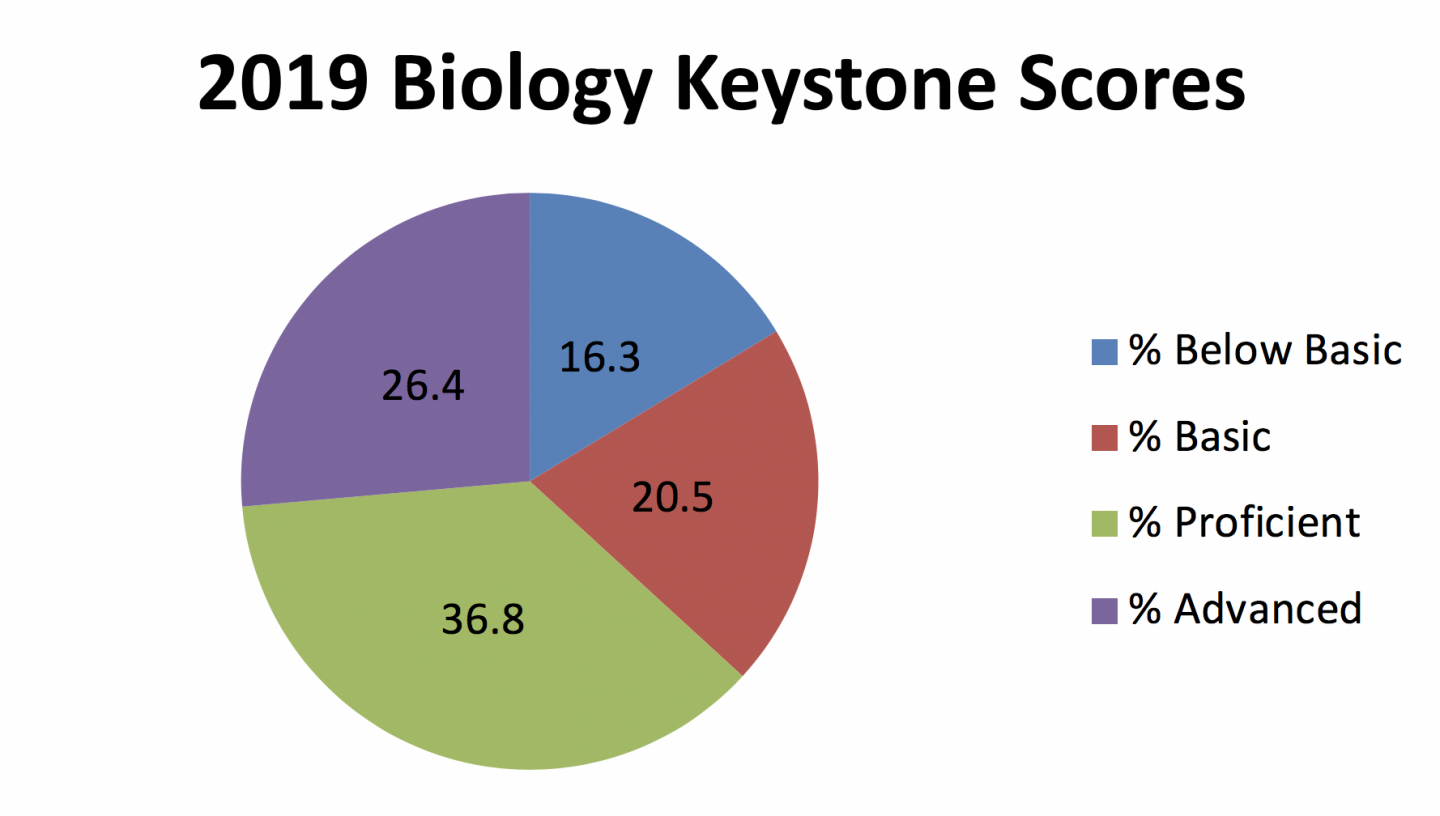If Keystone Exams Were a Graduation Requirement
Bottom Line: Pennsylvania must adopt school choice measures that allow children to attend schools with proven track records of success.
Demonstrating proficiency on the Keystone exams was slated to be a graduation requirement beginning with the class of 2017, but this was postponed. Act 158 of 2018 delayed the requirement until 2022 and provided four alternative pathways to satisfy the requirement.
While statewide data provide a basis of comparison for Allegheny County school districts, this brief examines Keystone scores and per student spending for a disparate geographical grouping within the county.
From 2015 to 2019, 11 of the 16 districts experienced declines in the percentage of students who passed the Algebra 1 exam while also seeing a rise in the percentage of those who failed. Seven districts experienced a similar trend on the Biology exam and 12 on the Literature exam.
In terms of average daily membership (ADM), 11 districts experienced attendance declines from the 2014-15 academic year to 2018-19. Over the same period, however, 15 districts expanded current expenditures per ADM.
Given the spending levels and all the programs designed to improve learning, it is apparent that the ongoing poor or declining performance at many schools is the result of far more fundamental issues than education experts are able or willing to understand or overcome.
Gaps in education are not eliminated by throwing more money at the problem. Pennsylvania must adopt school choice measures that allow parents to put their children in schools with proven track records of success.
Read the full policy brief here.
Findings:
- 36.8 percent scored at a proficient level.
- 26.4 percent scored at an advanced level.
- 20.5 percent scored at a basic level.
- 16.3 percent scored at below basic.
Read the full policy brief here.





